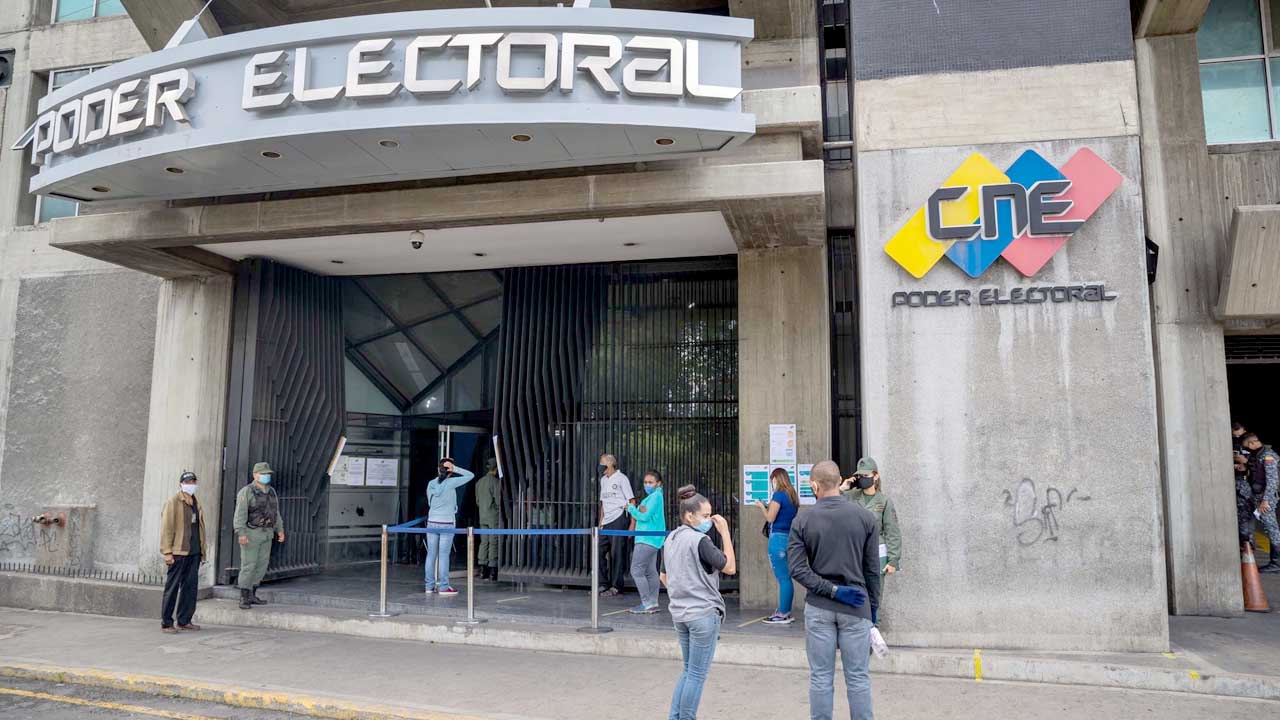RIO DE JANEIRO, BRAZIL – The new Venezuelan National Electoral Council (CNE) has gained confidence among the international community, which views with optimism the distribution of rectors -3 pro-Chávez and 2 opposition ones-, as well as the election formula and the feeling of openness. However, it takes it with caution and expects more actions.

The pronouncements made in this respect by the European Union and the United States represent a significant change in the vision that both had of the outgoing electoral body, which they criticized on repeated occasions, for having been appointed by the Supreme Court of Justice (TSJ) and not by the Parliament, as well as for its composition.
However, although the great powers view the CNE’s formula with optimism and the majority of opinions issued, both internationally and nationally, go in the same direction, there are also dissenting voices, such as the case of the Organization of American States (OAS), which maintains the same position of rejection it had with the previous electoral body.
On the other hand, other groupings decided to remain silent on the matter. Still, the most striking case is that of the Lima Group, whose objective, since its creation in 2017, is to seek a peaceful solution to the Venezuelan crisis.
The multilateral grouping, to which 12 countries belong – Argentina, Brazil, Canada, Chile, Colombia, Costa Rica, Guatemala, Honduras, Mexico, Panama, Paraguay, and Peru ,- is accustomed to issuing critical pronouncements on any movement in the political sphere that occurs in Venezuela and that it considers negative.
INTERNATIONAL SPHERE
The EU highlighted that the designation of the new CNE is “a first step” in the path towards a “credible, inclusive and transparent” electoral process in the Latin American country. However -it specified- it will continue to evaluate the development and performance.
“The designation of the National Electoral Council is a first step and part of a process that we will continue to evaluate,” said the chief spokesman of the European External Action Service, Peter Stano, in a statement sent to Efe.
He stressed that “this process must be led by the Venezuelans and must include other elements that guarantee a credible, inclusive and transparent electoral process, as requested by the Venezuelans themselves”, something in which the US agrees, as it supports “a comprehensive and negotiated solution” to the crisis in Venezuela.
The solution, said the State Department’s Acting Assistant Secretary for Western Hemisphere Affairs, Julie Chung, has to address all aspects so that the conditions for “free and fair elections” are in place.
In agreement with the EU, Chung stated that “it is up to Venezuelans to decide whether the new CNE contributes to this end”, and changes must follow, such as lifting bans on parties, releasing political prisoners and inviting credible international electoral observers, and maintaining a public electoral calendar”.
For its part, the Spanish Government highlighted that the new CNE has among its members “personalities of the democratic opposition supported by civil society organizations”.
The Ministry of Foreign Affairs underlined that “it is a first step, which should still be followed by other necessary measures to guarantee the holding of fair, credible and transparent elections,” in the same line as the large blocs.
However, on the opposite side is the OAS, which rejects the electoral body, considering that it is chosen by an “illegitimate” Parliament elected in “fraudulent elections”, which “vitiates with nullity its acts and decisions, among them, the election of the CNE rectors.”
In the same line, the Chairman of the Foreign Relations Committee of the U.S. Senate, Bob Menendez, and Democratic Senator Dick Durbin, individually positioned themselves, rejecting the election of the electoral body.
NATIONAL LEVEL
In Venezuela, it was rejected by the opposition group led by Juan Guaidó, who already showed his displeasure even before the voting of rectors took place nor knowing the names that would be elected, an opinion shared by the opposition María Corina Machado, of the Vente Venezuela alliance, who aligned herself with the position of the OAS while criticizing that of the EU.
However, the prominent opposition and two-time presidential candidate Henrique Capriles, who relies on dialogue to achieve the common good, stated that the new CNE is “an indispensable first step” to open paths towards democracy and political reconstruction of Venezuela.
The formation of the governing body was also defended by the country’s main employers’ association, Fedecámaras, which it considered the result of “months of efforts” of social sectors and political leaders.
“Having a representation in the CNE of important leaders with electoral experience”, after 17 years, is the “result of months of efforts, meetings” and commitment of political and social sectors to “achieve legitimate conditions in the electoral processes”, concluded the business organization.
Source: efe

